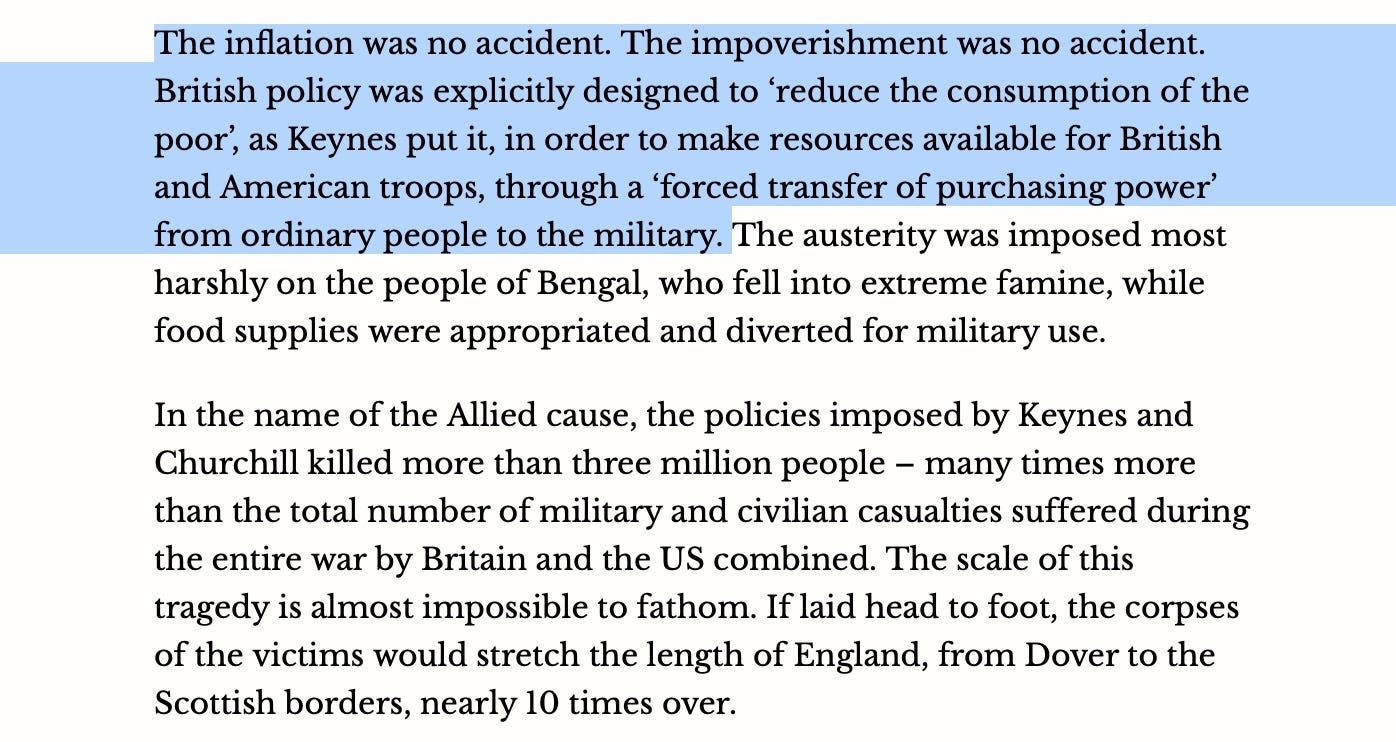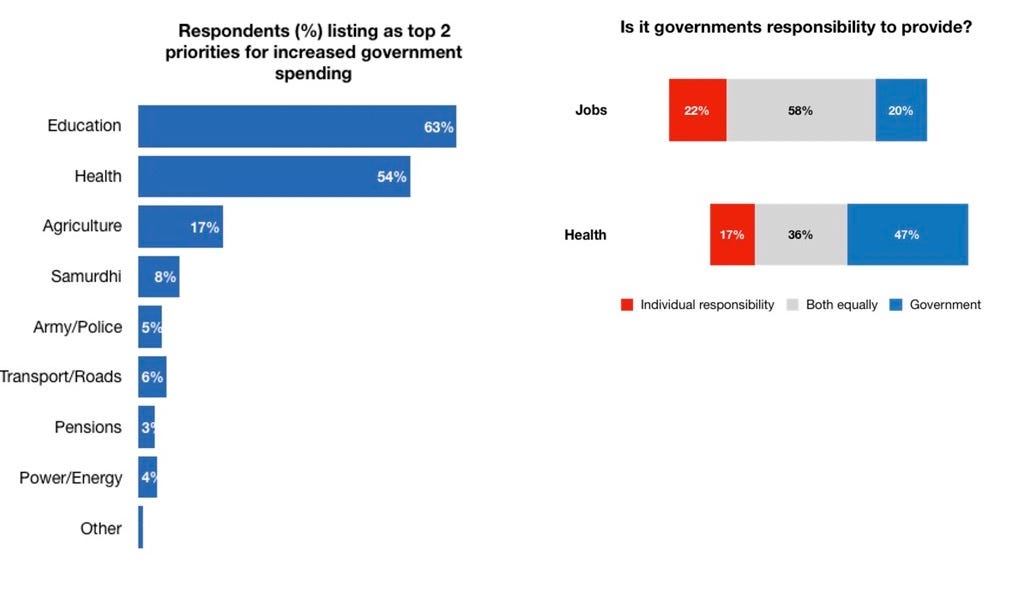Why Crisis Is The Time To Build

Sri Lanka is having daily powercuts because we only produce maybe 50% of the power we need (through hydro). And that only works when it rains. For the balance we import oil or coal, which we can’t afford anymore. So we need to produce more local power. Luckily we have the sun all year, and solar is cheap now. So we need to go Parakramabahu of the Sun.
Sri Lanka also has dollar shortages, because we import more than we export. We’ve been covering up this trade deficit with loans, but the loans have run out. So what we need to do is protect local industries that can also export. That is, we need industrialization.
As you can see, the answer in both cases is building. We don’t have a reserve currency, we can’t just make up money like white people. We have to actually invest in our real economy, we have to actually do stuff. That financial chicanery is for rich, not poor countries. We have to get to work. Massive public works.
Decolonizing Economics
This is actually mainstream economics since the Great Depression. You have to spend your way out of a crisis. You can’t austerity your way out, you have to ‘prime the pump’. While white countries applied this to themselves ever since the 1930s, they have never applied it to the exploited South.
This basic strategy is called Keynesism, and he scruplously did not apply it to India, which he actually helped administer. Instead he imposed harsh austerity there, killing more than three million people, so that white people could have more filthy lucre:

This apartheid economics continues to this day. While even private companies within White Empire get government bailouts, governments in the south must bailout private creditors. On the backs of the poor. That’s what the IMF enforces. They call it ‘debt sustainability’. That’s the real debt trap, not China building actual infrastructure.
Again this is the complete opposite of the economics applied to rich/white countries, which is that you must spend your way out. And that economic logic is sound, it just gets corrupted by power. Hell, it’s not even economic logic. It’s just logic. Only racism and neoliberalism makes it obscure.
The great lie of neoliberal economics is that the economy cannot be understood by working people, and must be manipulated by obscure priests, followers of the great temples of monetary policy in White Empire. The IMF is always headed by a European and the World Bank by an American. Other institutions are more international, but these are pure imperial power.
The truth is that any working person knows that you need power plants to have power. You need industries to earn dollars. And yet we’re sold some bullshit about interest rates and ‘structural adjustments’ which only economists can understand. And then the rich take it all.
This is all missing the point, which is obvious to a child. Sri Lanka has problems in its real economy, meaning we need real changes. You know, bricks on the ground.
And the history is that ancient Sri Lankans understood this. In the south, the king’s only real jobs were building irrigation systems and stupas. To be honest the job description hasn’t changed, we just got caught in a colonial debt trap, with a local comprador class helping keep us there. The truth is that we still have to build shit, we have to grow shit, we have to get back to what we knew.
The trouble is that places like Sri Lanka never fully decolonized. We retained British systems of government, British laws, colonial police, colonial elites, colonial mores. The country was socialist for a while (it’s called the Democratic Socialist Republic of Sri Lanka) but we’ve lost both the democratic and socialist part since the 1980s. We’ve lost the plot.

As a 2019 survey showed, most Sri Lankans favor high public spending on health and education, and shared government responsibility for jobs. And yet successive administrations have prioritized imports for rich people, like cars, and highways that maybe 15% of the population can even drive on. The great trap of electoral democracy is that, as Aristotle said, it just ends up in the control of oligarchs.
Other countries found a communist way out, and they’re doing better now. As Branko Milanovic said, “Communism was a system that enabled poor and colonized, or quasi colonized countries to effect a social revolution– break the power of landlords, impose equality of genders– & create conditions for the development of autochthonous or domestic capitalism.”
And so you see countries like China or Vietnam that industrialized while expanding social programs. And they did it resisting imperial advice, not playing along. Sri Lanka missed that boat. But capitalism is always having crises. And each one is an opportunity.

Political Changes
Right now Sri Lanka is having a revolution without revolutionaries. Everyone is on the street. The rallying cry among English-speaking elites is that we need to just go to the IMF, but as I hope you can see, this doesn’t solve anything. Thankfully they’re a minority.
Most Sri Lankans like government spending, they like government jobs. Student protestors have been on the street asking for these things since 1978. And this is the revolution that needs to take place. Working class people actually taking power, overthrowing the ‘educated’ elites.
The question is where the money comes from, but we live at a time of global reorientation. There is funding from China, India, Russia, from actual international institutions, we just have to be wise in what we’re using that funding for. At the same time our own labor generates value. We can channel that value for the common good.
I am not saying that any of this is easy. In fact, I’m saying that it is hard. But the first step is imagining a different reality is possible. That we’re not just flotsam in the financial stream, that we can do something.
That means believing that it is even possible to do public works again, as our ancestors did. That we can build power plants when the power runs out. That we can build public transport, for everyone. That we can build industries to refine things like graphite or add value to tea, not just export resources for crumbs. To believe that it is possible to grow food. To heal the sick. To educate our children. The first step of getting out of this problem is believing that we are the solution.
People say we don’t have time for this, people just need relief right now, they need a short-term solution, but that is the long term problem. Years of short-term thinking is precisely how we ended up long-term fucked. We’ve been short-terming the trade deficit, the public investment deficit, the imagination deficit for 40 years. And now the long term has come.
If we’re not going to do something now, then when? People are out there protesting with their children. They’re not protesting for their children to have the same problems when they grow up. That’s why we can’t beg, borrow, or defer our way out. We have to build. We cannot just bail out 40 years of a failed neoliberal system. We have to build a new one.